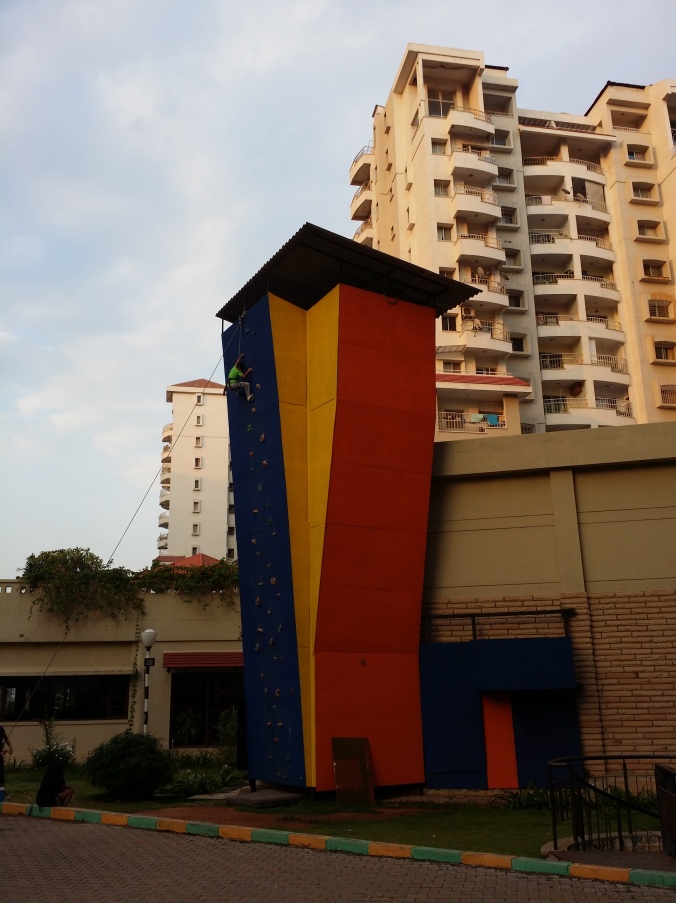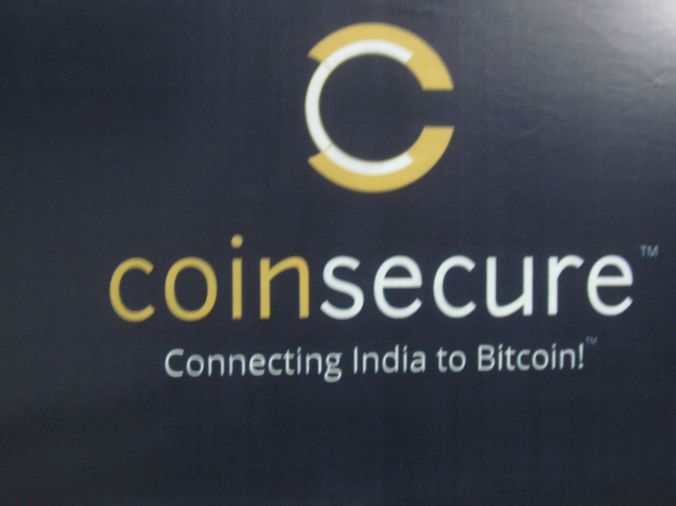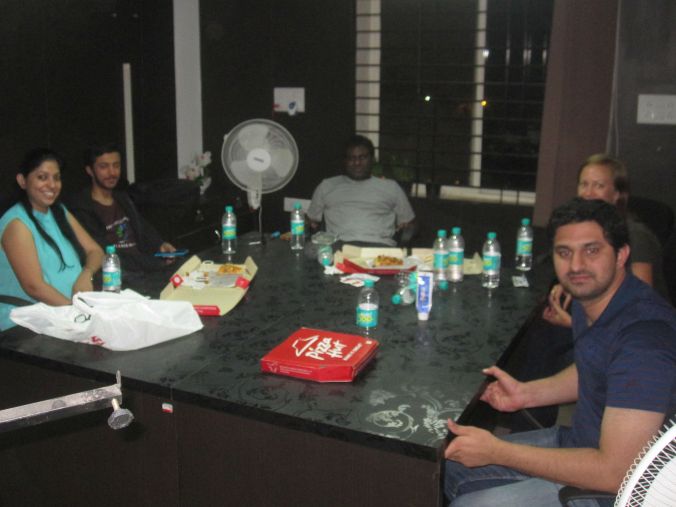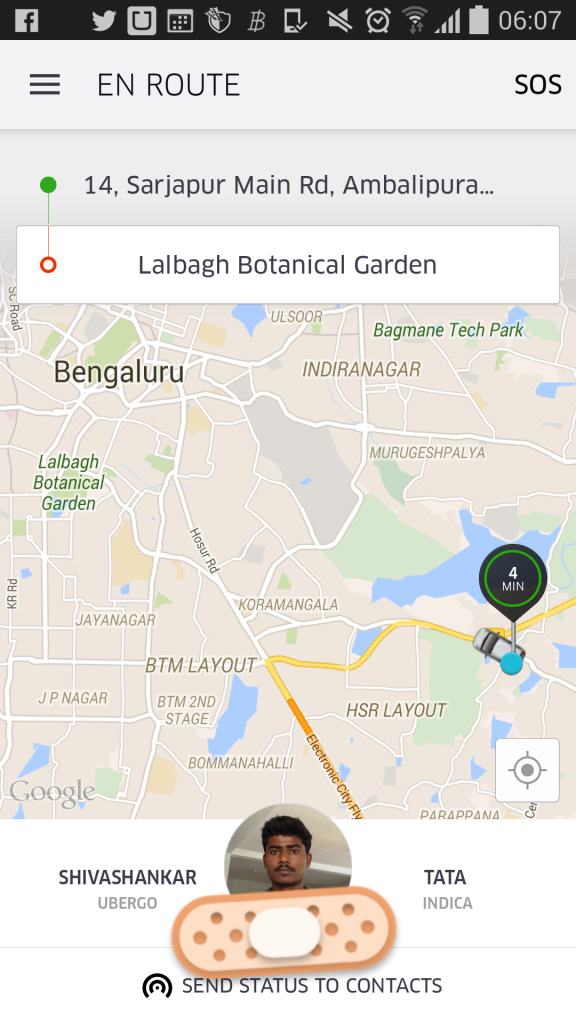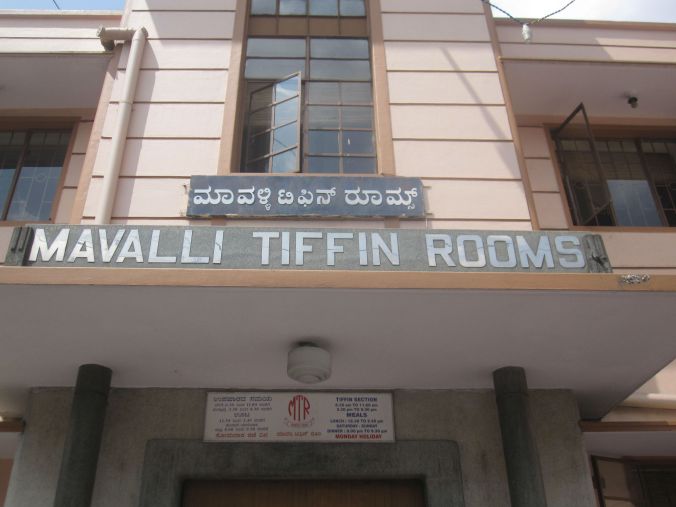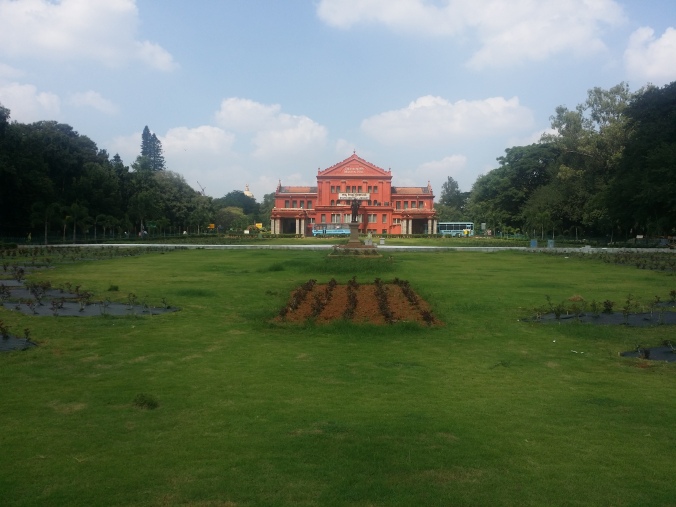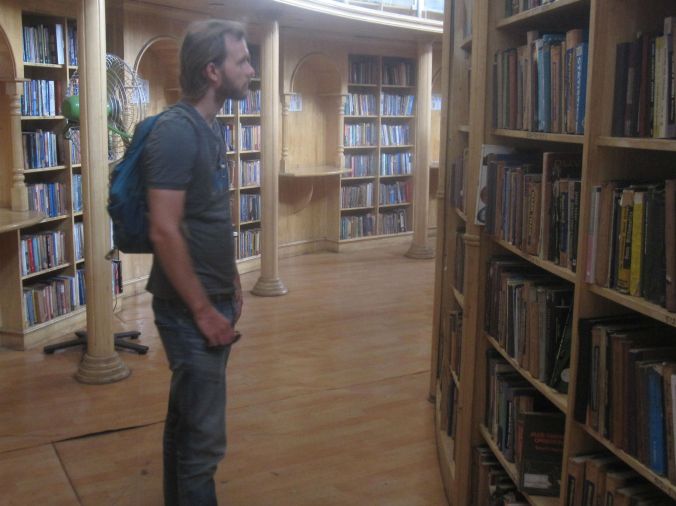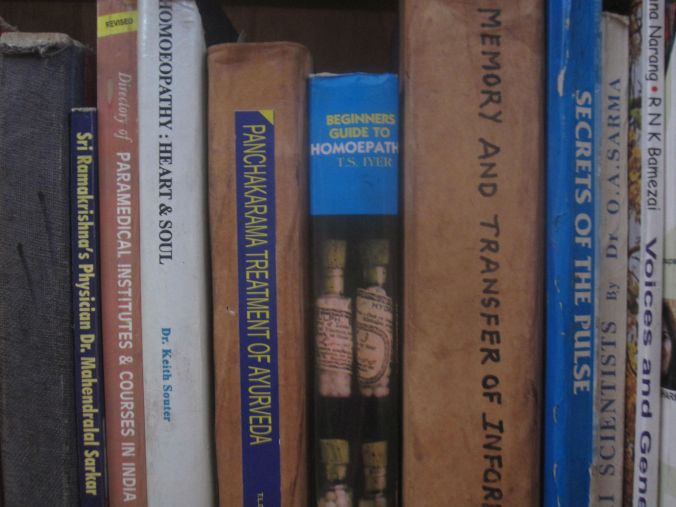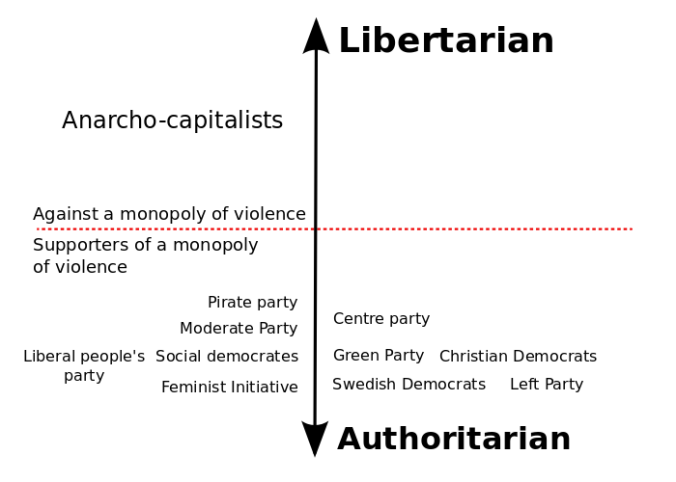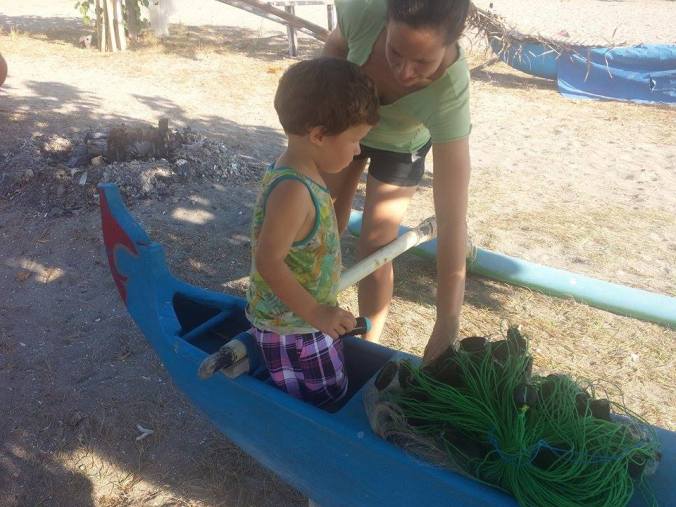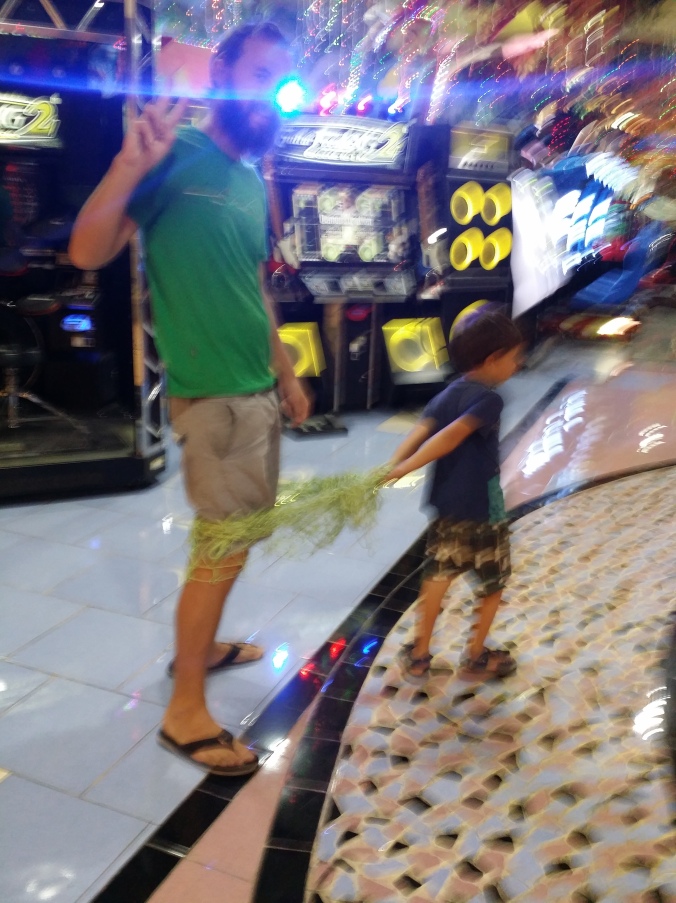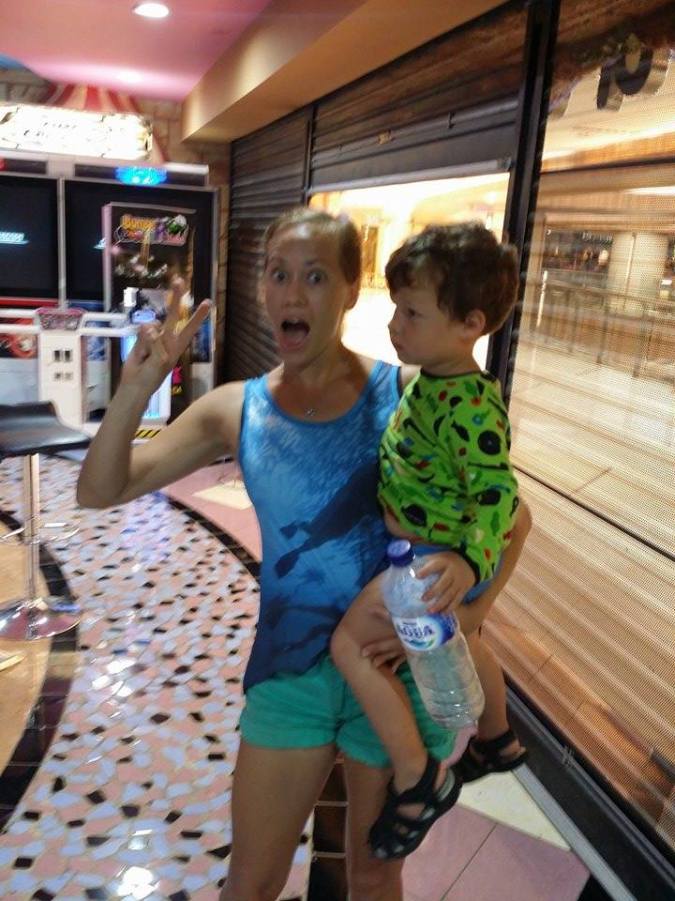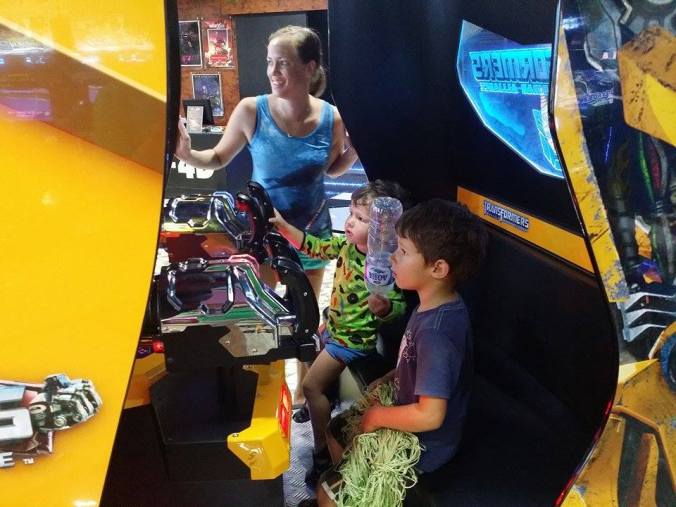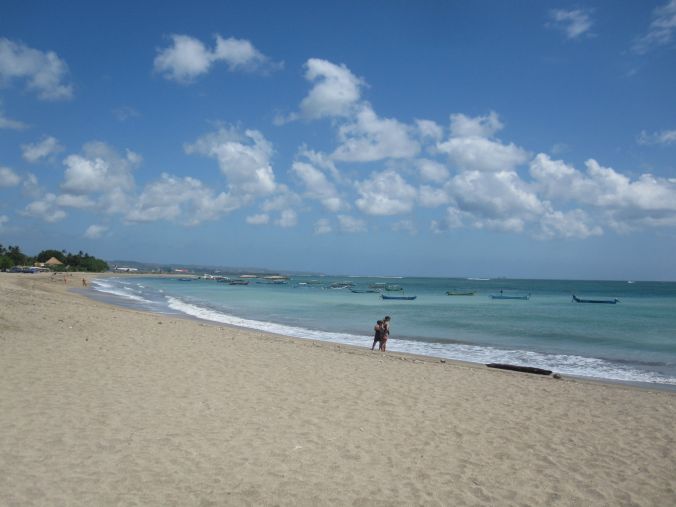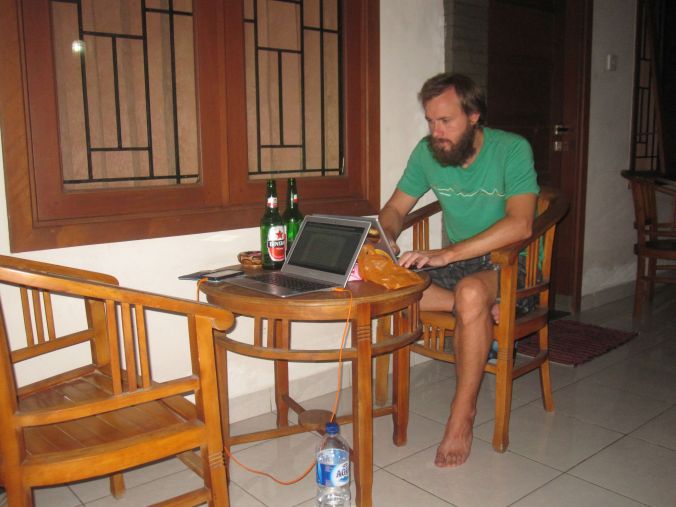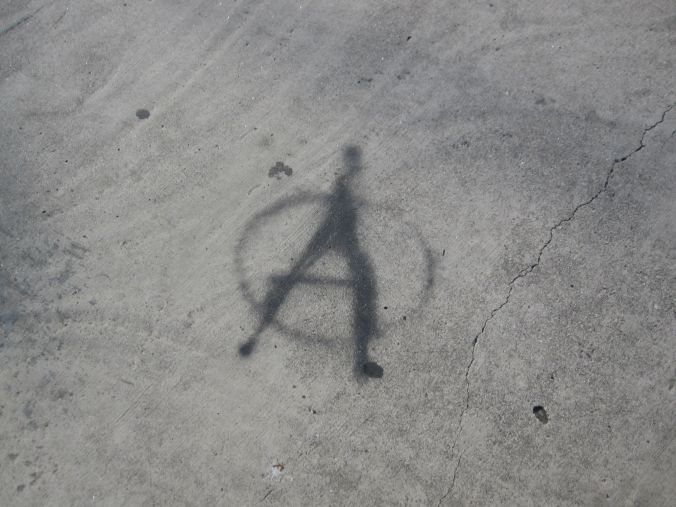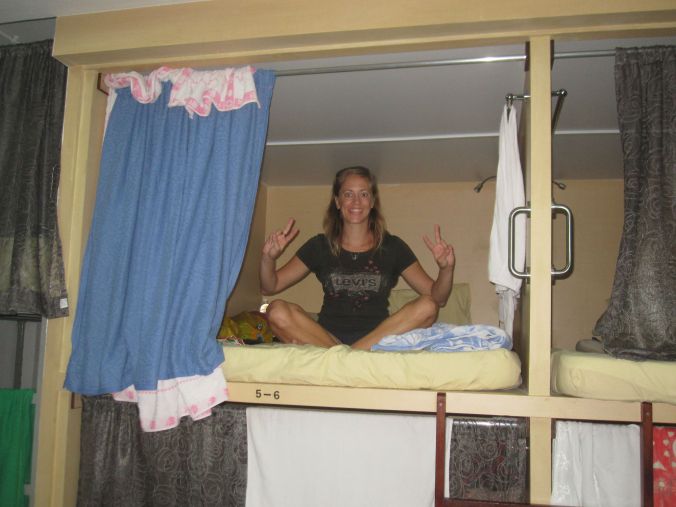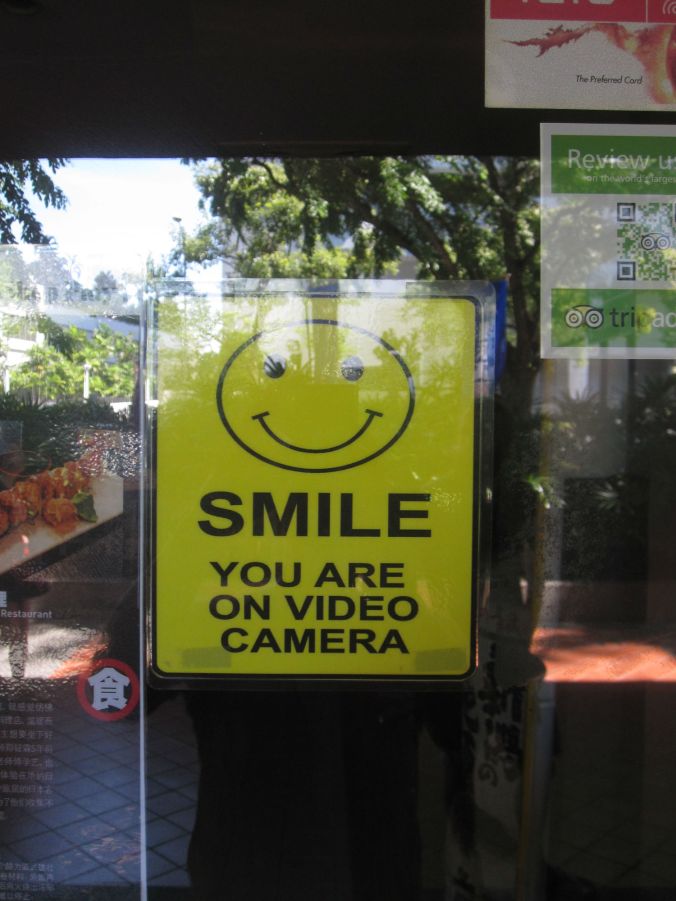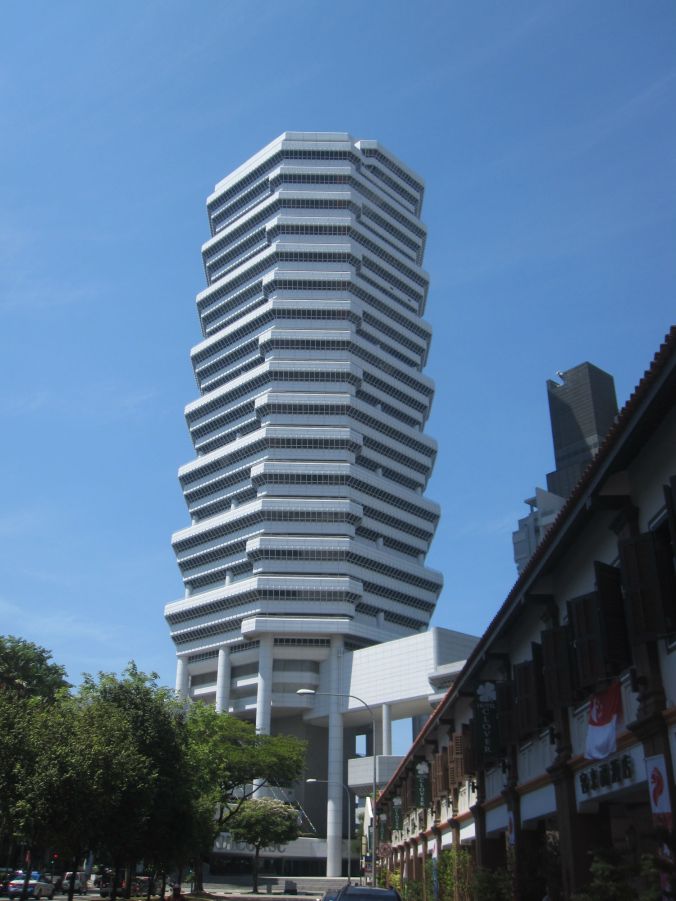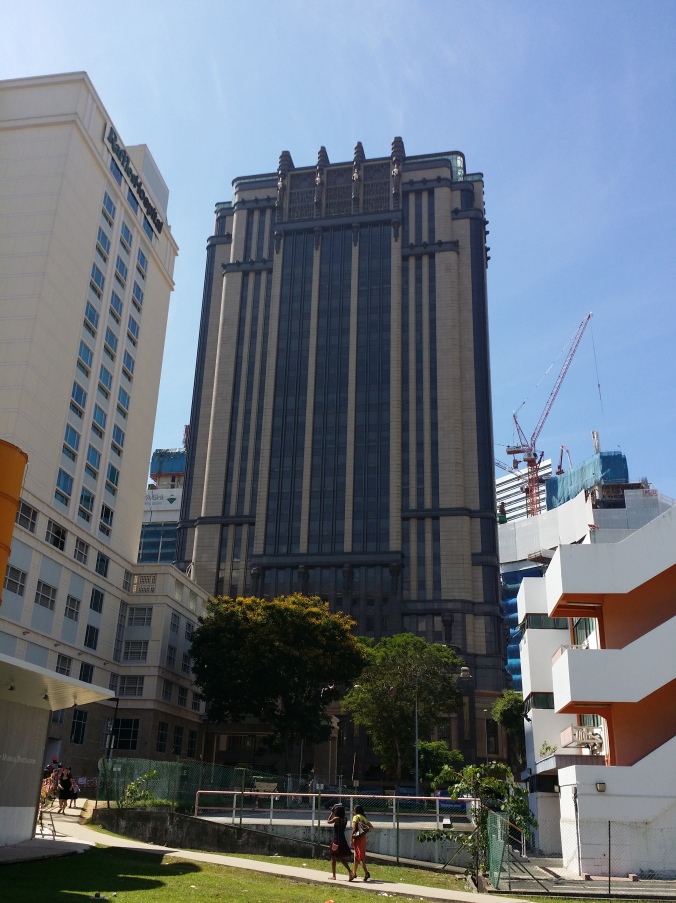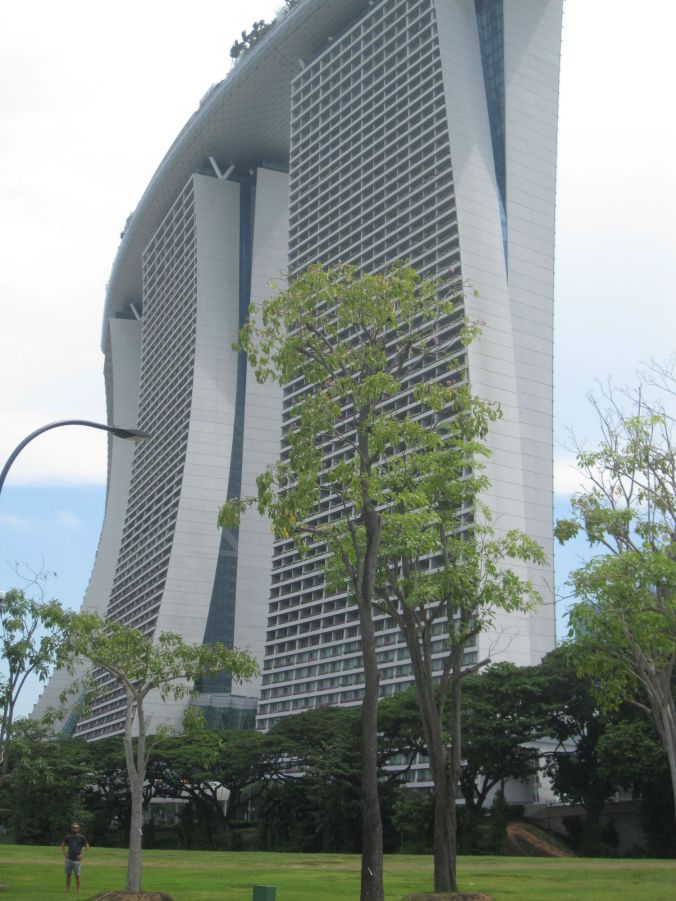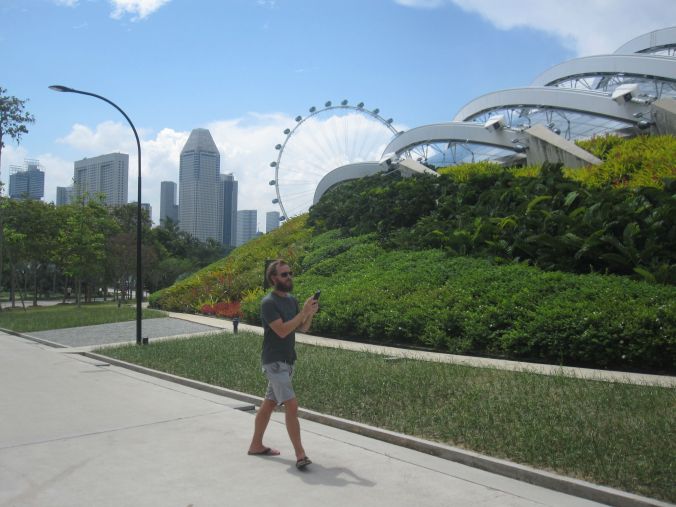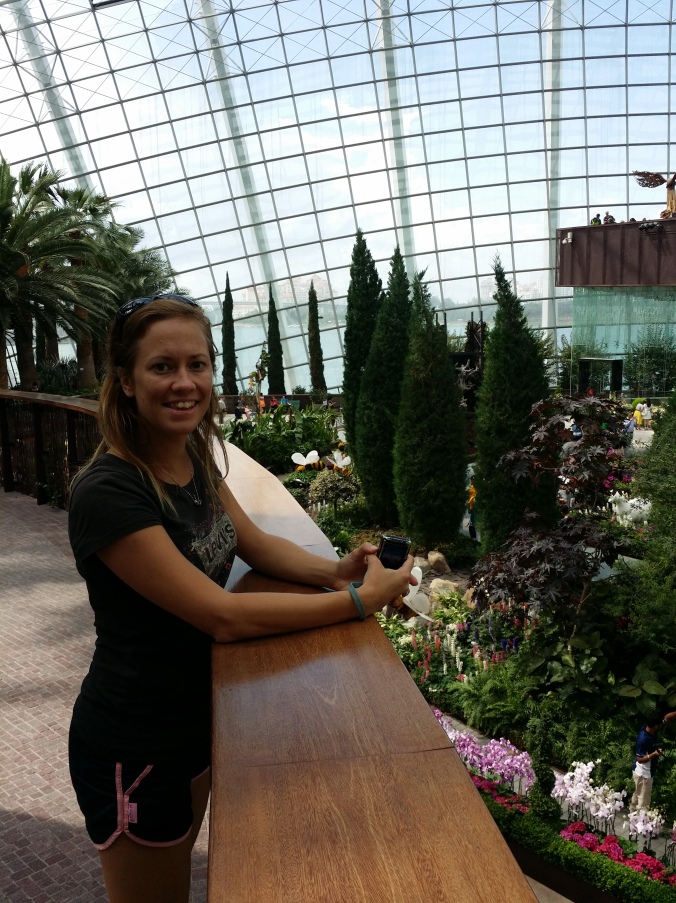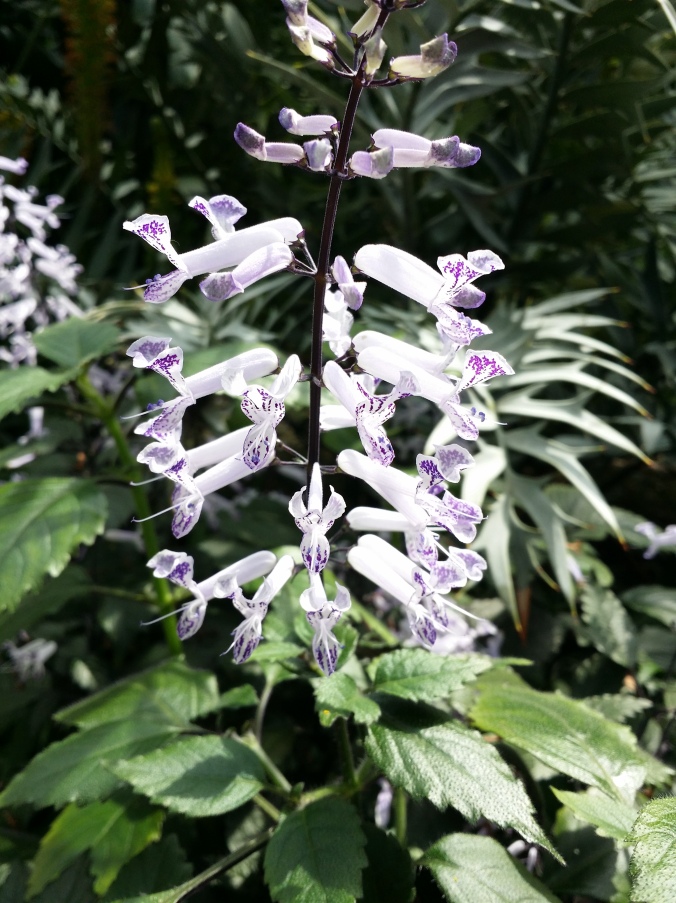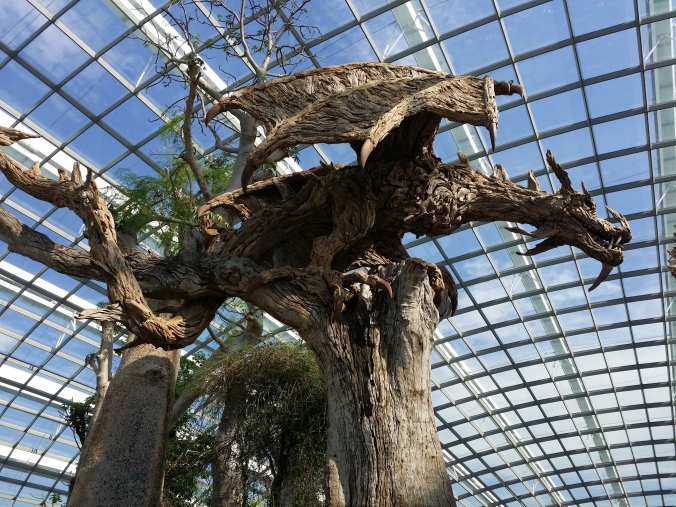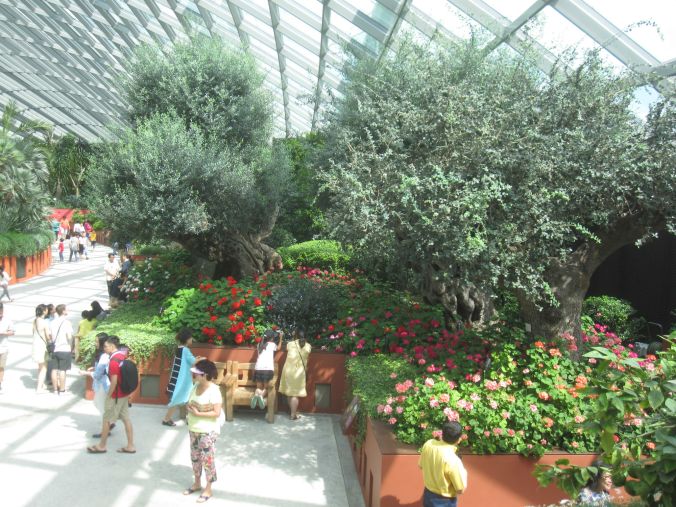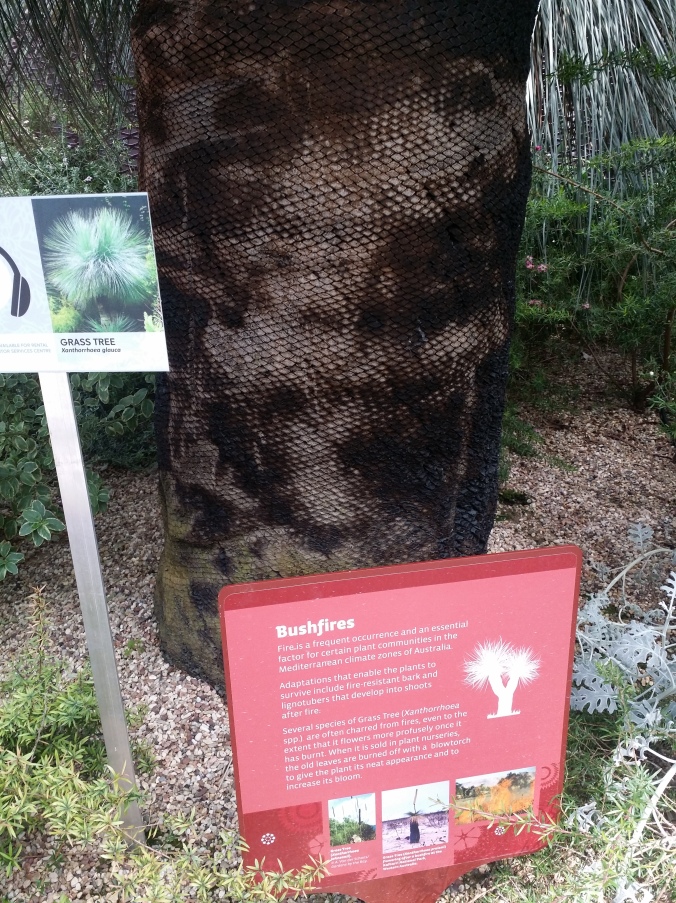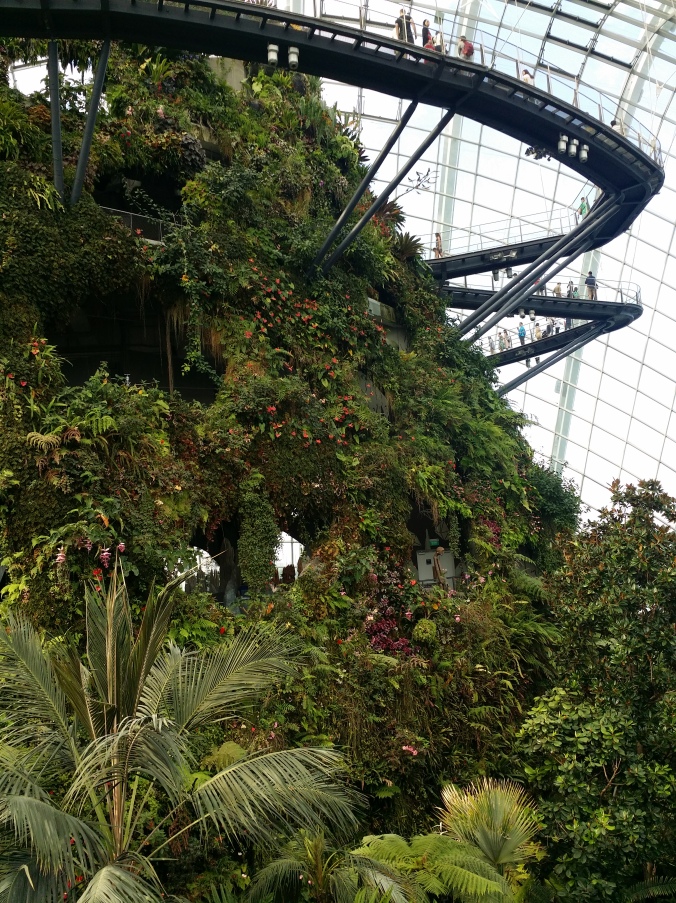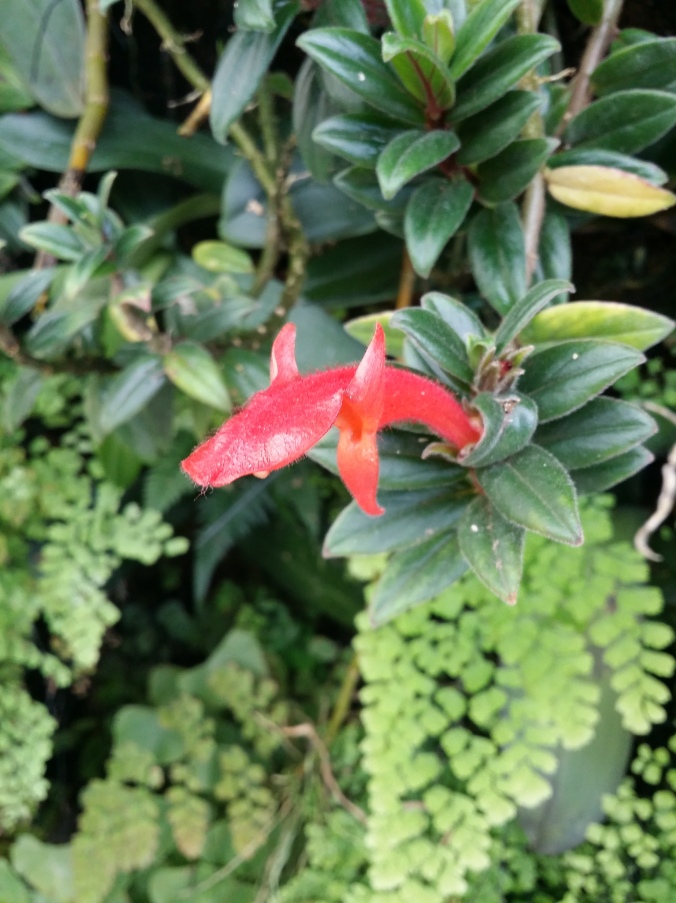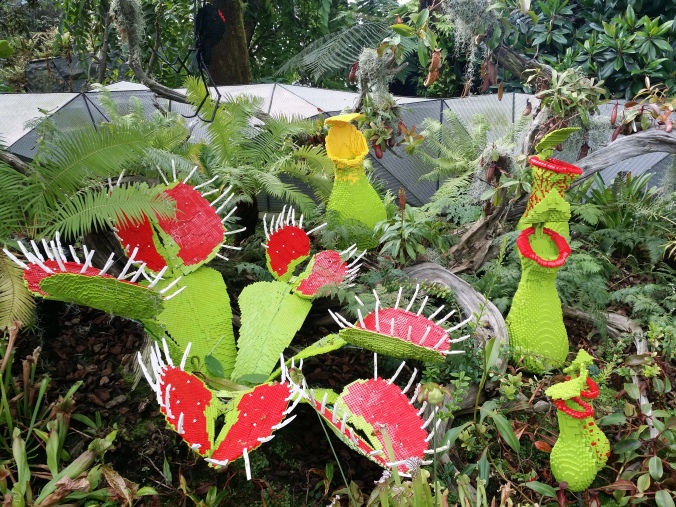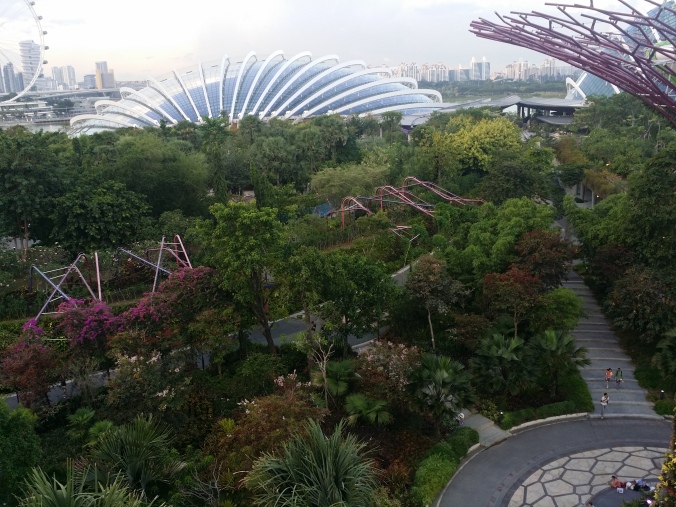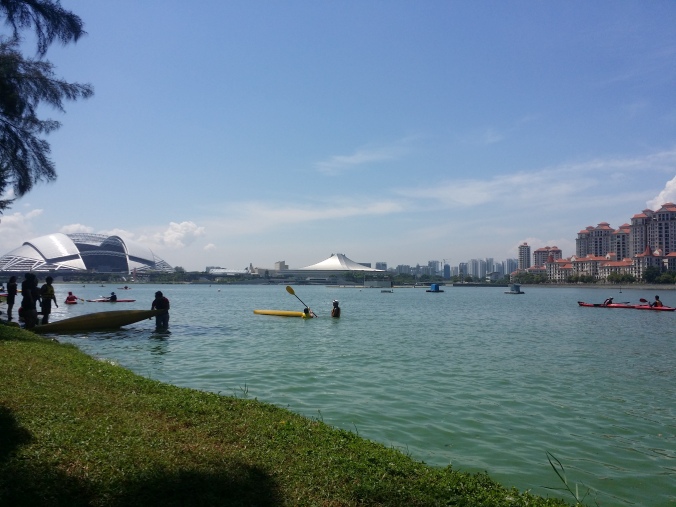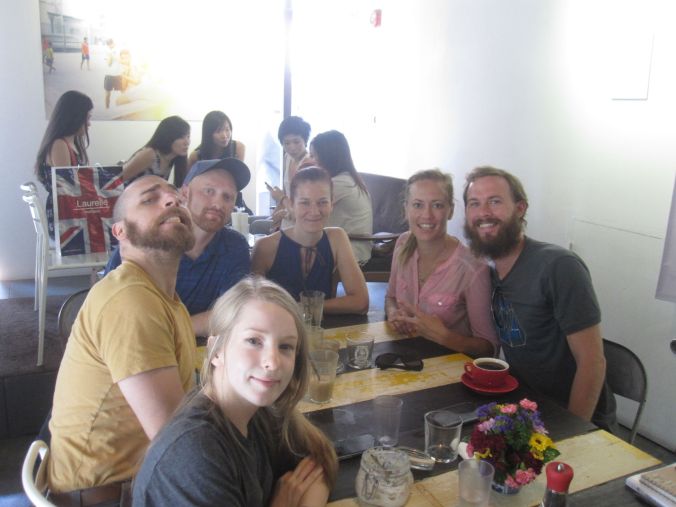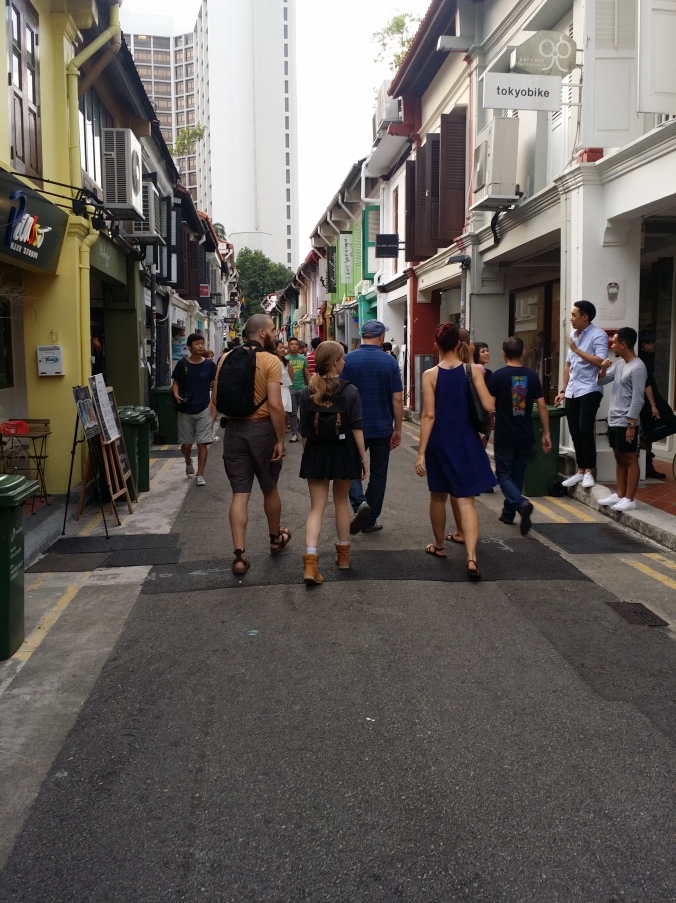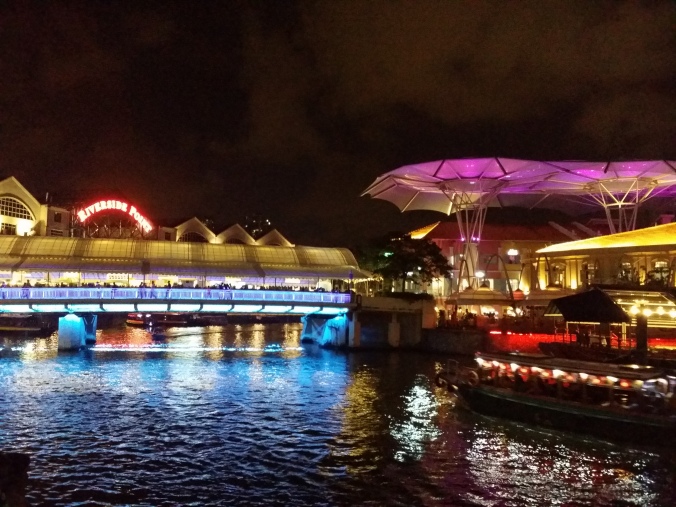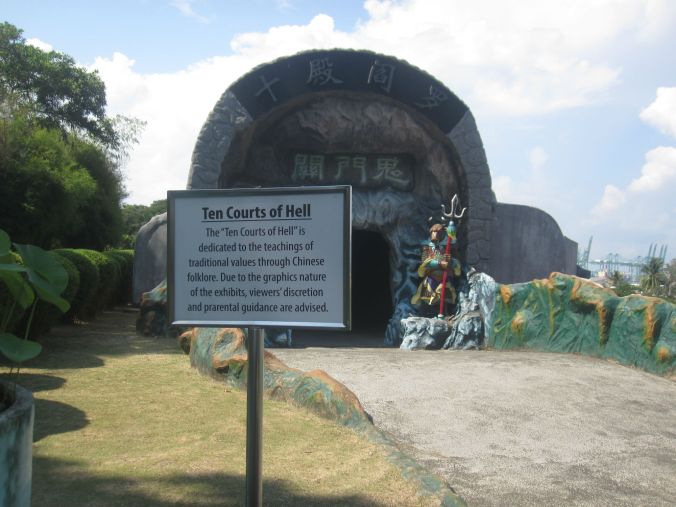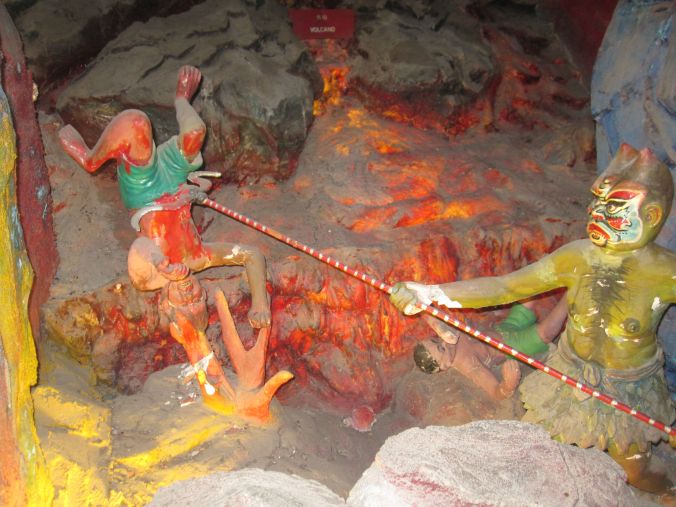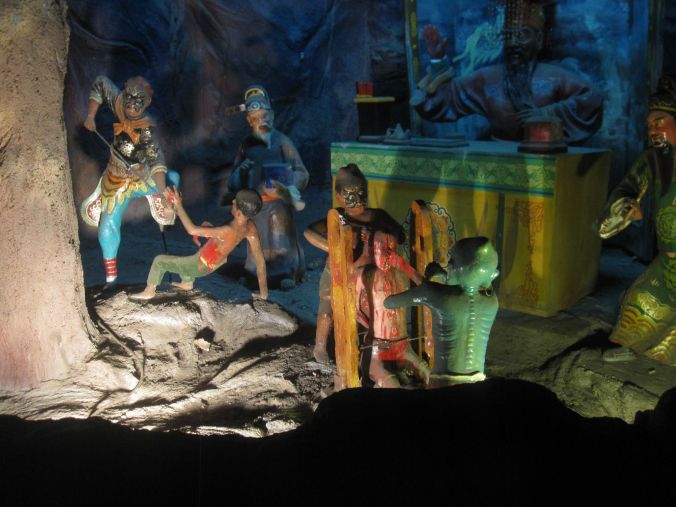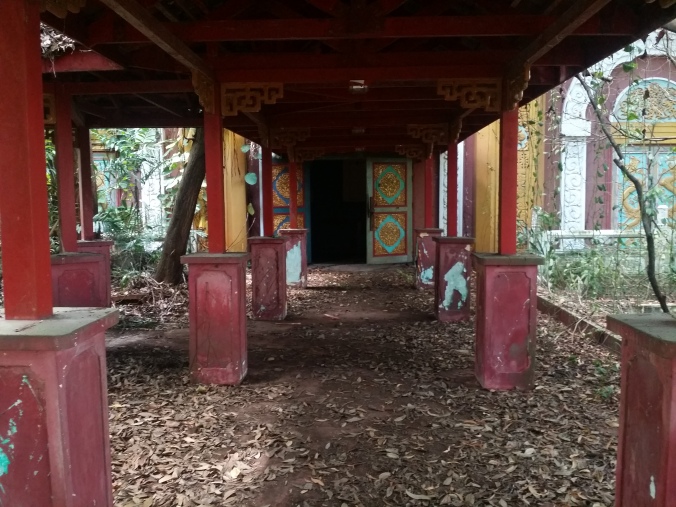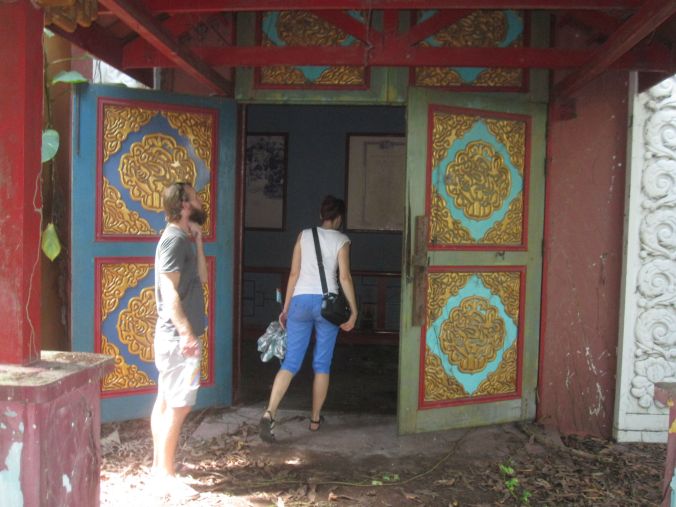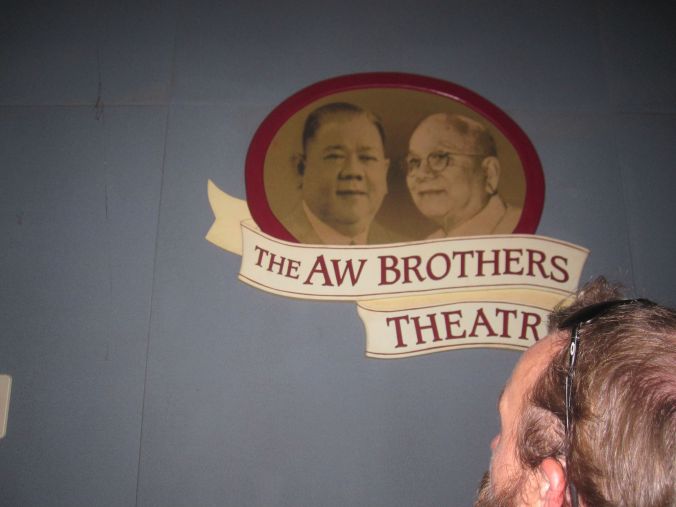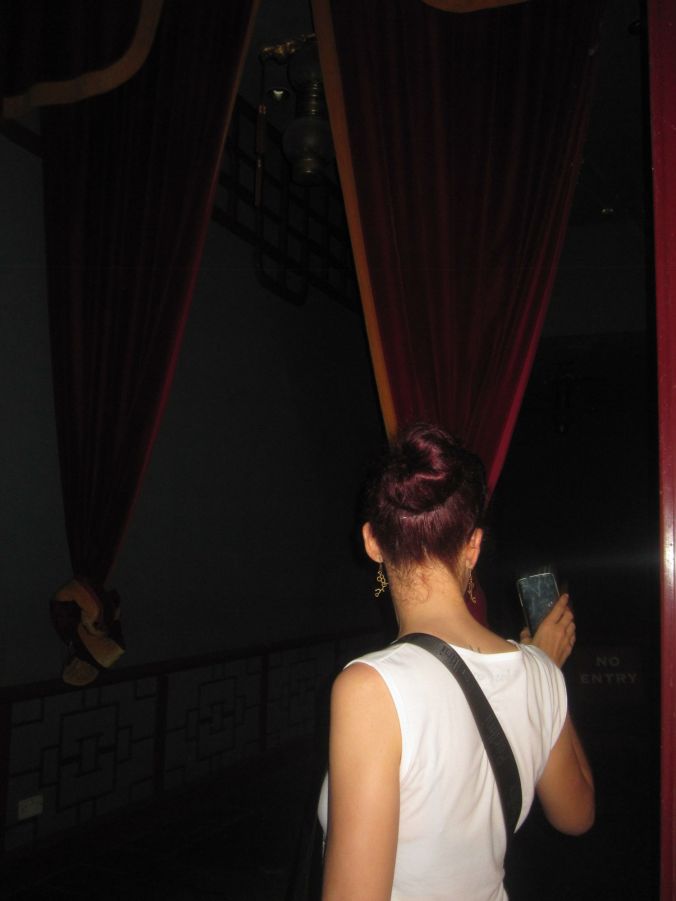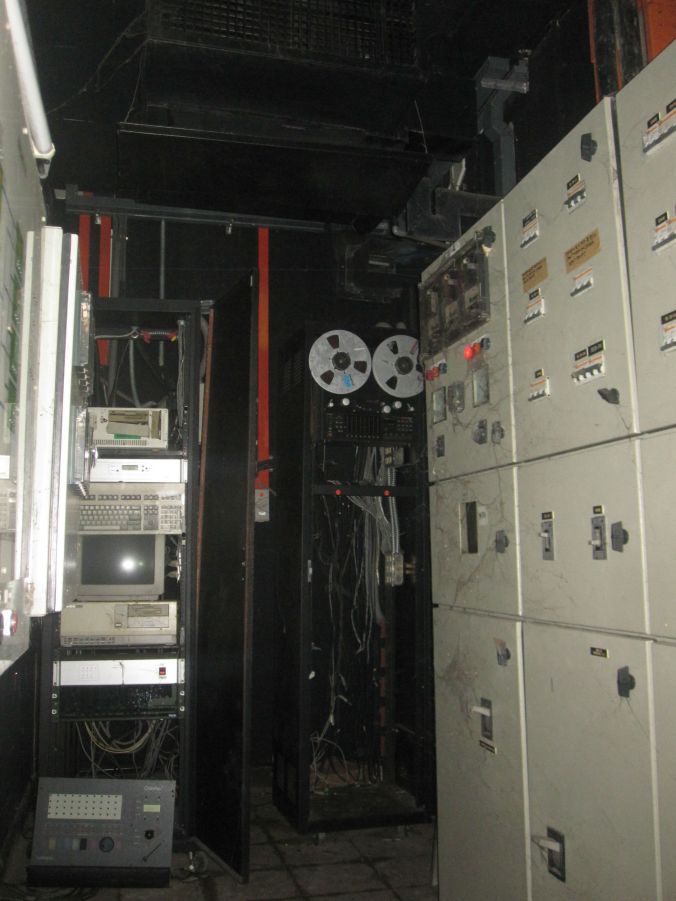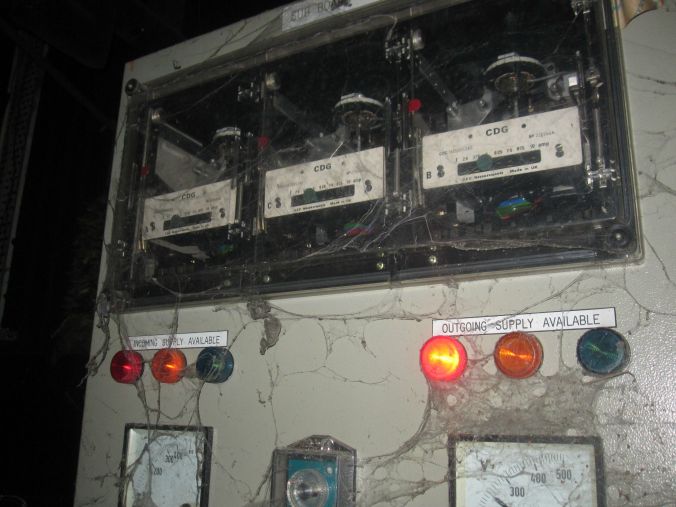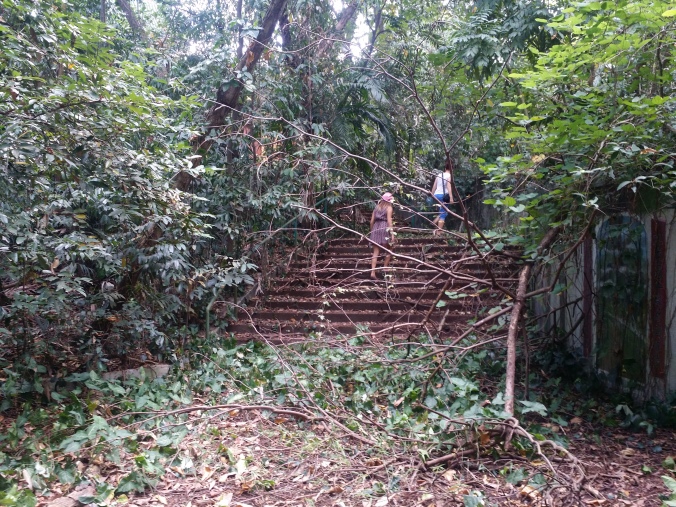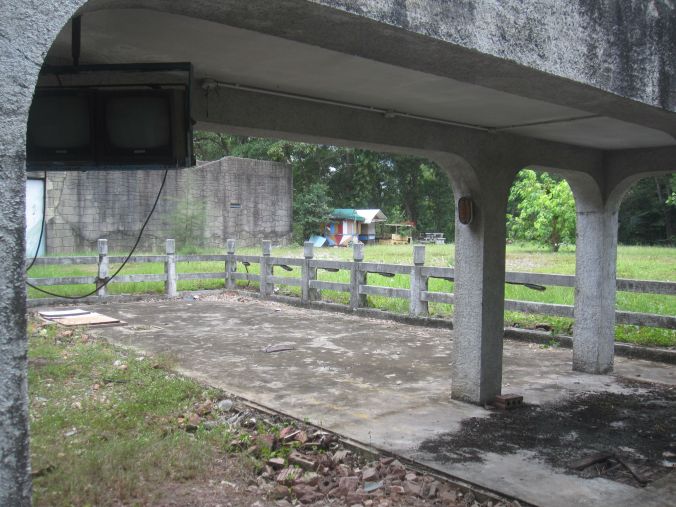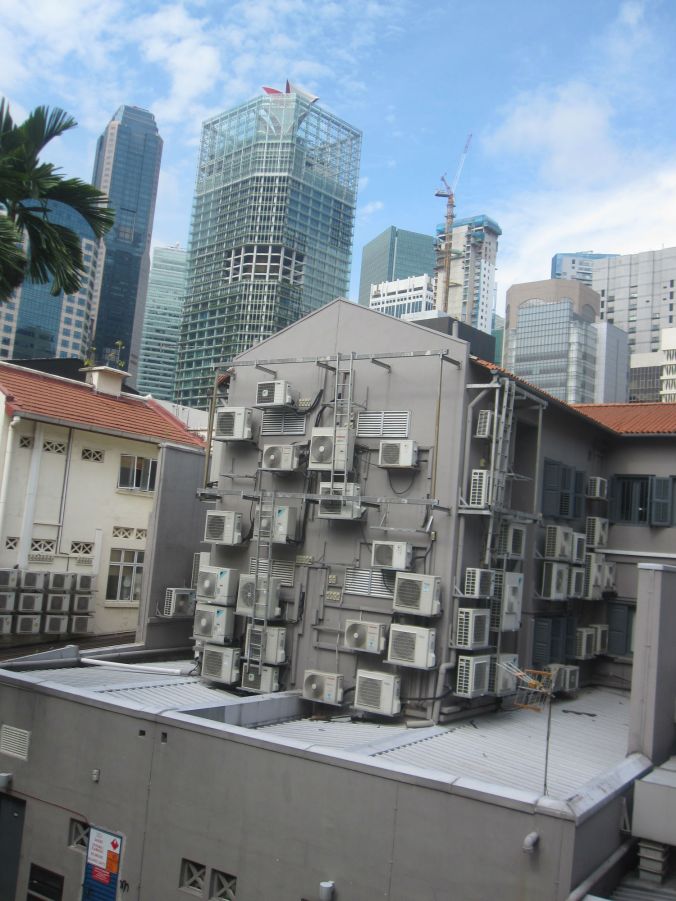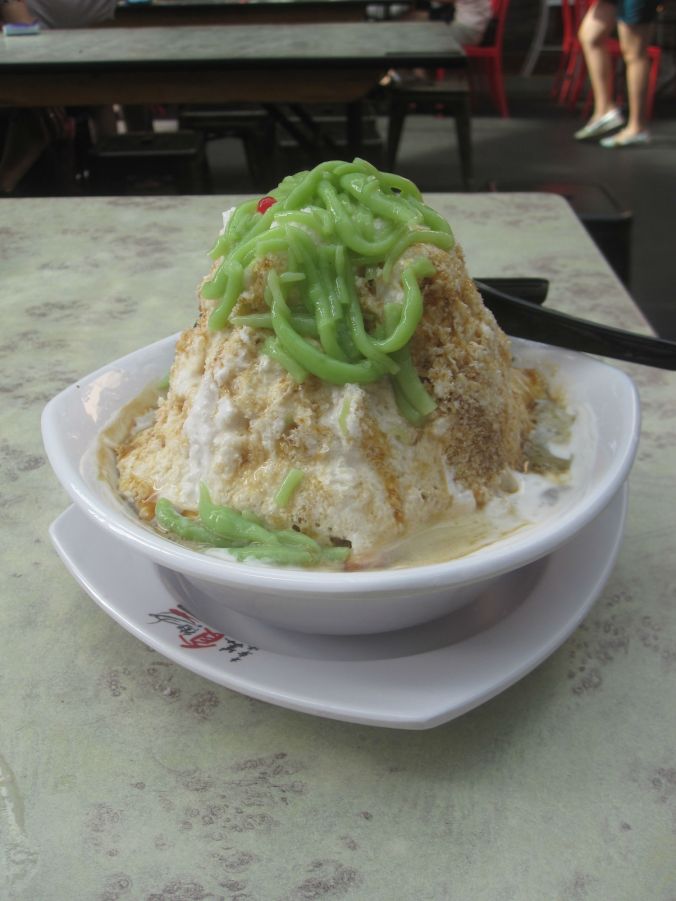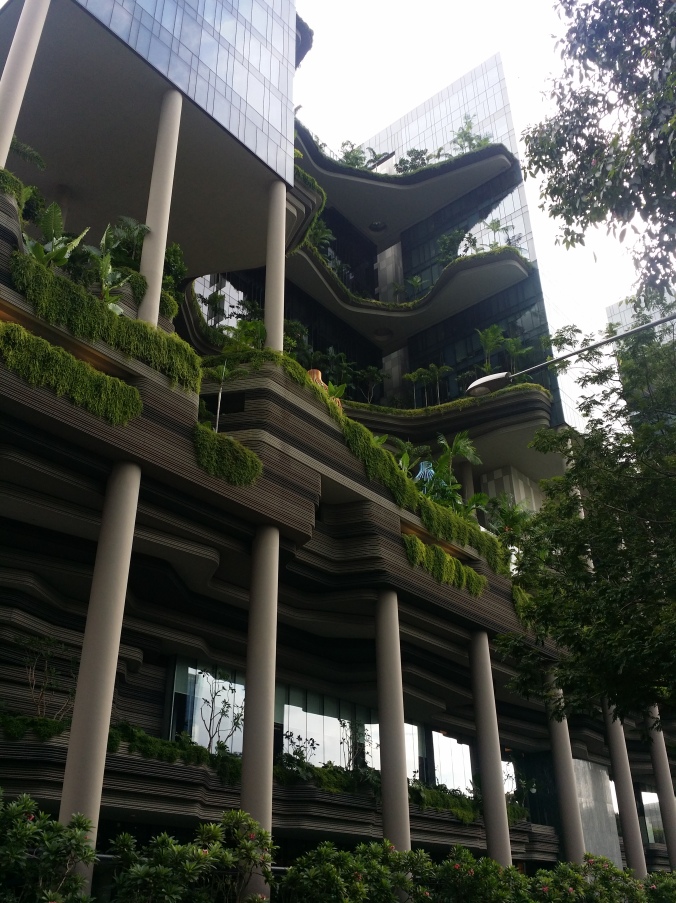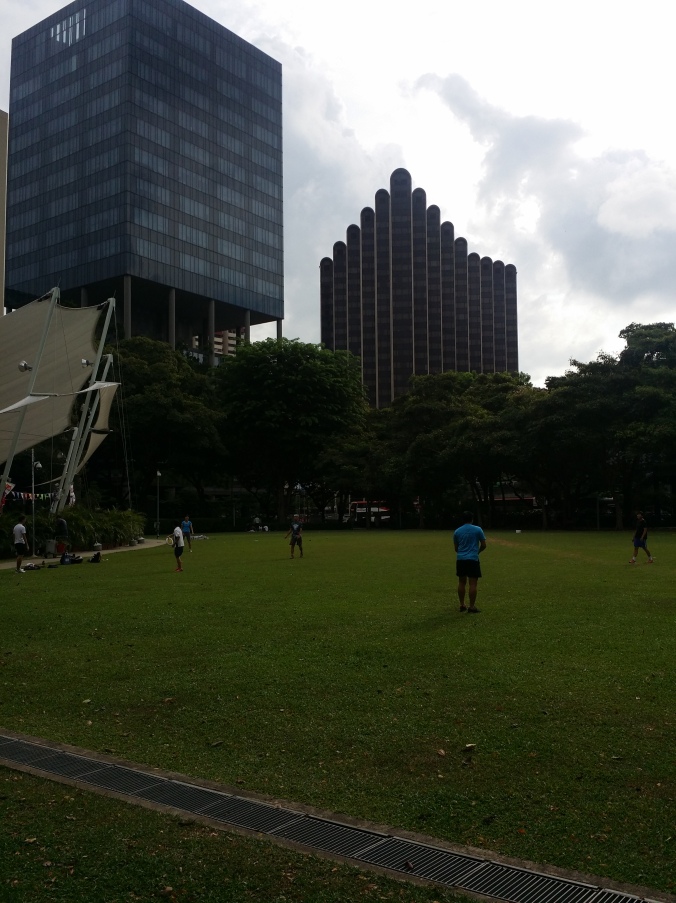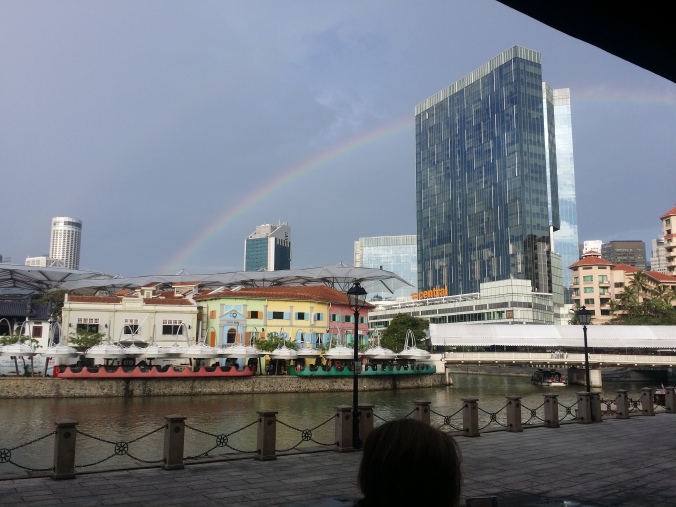(Please scroll down to the orange text for the English version)
Vår nästa destination i Indien valdes genom att Ulrika googlade “bitcoin India” och upp kom artiklar om Bangalore (även kallat Indiens Silicon Valley), så vi bestämde oss för att åka dit! Ulrika hittade även en libertariansk diskussionsgrupp på facebook och fick kontakt med flera libertarianer i Bangalore och vi blev inbjudna att få komma och bo hos en av dem. Vi hann inte mer än att komma innanför dörren till Sumantras och Rubias lägenhet innan Ulrika kände sig dålig och efter en vilopaus konstaterade vi att Pontus förkylning som han hade i Alleppey nu hoppat över till Ulrika fast värre. Med mycket sömn och starka piller lyckades Ulrika ändå vara med på äventyren vi hade planerat i Bangalore. Vi hade stämt träff med ett gäng libertarianer (både minarkister och en anarkokapitalist) på det första växlingskontoret för bitcoin i Indien. Där fick vi lära känna det driftiga entrepenörsparet Benson och Jincy som sa upp sig på sina välbetalda jobb för att starta företaget Coinsecure för 3 år sedan, samt några av deras anställda och en oerhört duktig teoretiker om anarkokapitalism, Shashank. Vi hade oerhört trevligt och vi diskuterade allt från bitcoin, nattväktarstat vs anakokapitalism, till hur det ser ut i dagens Indien och Sverige. Vi fick krossa en hel del myter om den svenska välfärden! Det största samtalsämnet var dock bitcoin och det var intressant att få höra hur det går för bitcoin i Bangalore och Indien. Benson har gjort ett bra jobb med att hindra statliga myndigheter från att sätta käppar i hjulen för bitcoin i Indien. Ölen var inte dålig den heller så den natten smög vi in hos vårt värdpar, Sumantra och Rubias lägenhet väldigt sent och det var väl tur att Ulrika kunde fungera hyfsat med febernedsättande dunderpiller och nässpray!
Vi har även haft nöjet att umgås och diskutera på kvällarna med Sumantra som är libertarian och Rubia som inte är libertarian, men väldigt öppen för frihetliga argument. Stort tack för att vi har fått bo hos er och att ni tagit hand om Ulrika när hon var riktigt dålig! Vår framtida dörr står alltid öppen för er och alla ni andra häftiga människor vi har mött i Bangalore!
Bangalore var också första gången som vi provade Uber och vi kan verkligen rekommendera det! Helt plötsligt slipper man tjafsa om priser, du blir aldrig lurad att betala överpris bara för att du är turist och du blir inte tagen på omvägar för att priset ska bli högre! Det är också säkert att hoppa in i bilen då du har identiteten på den som kör bilen (både namn och bild, samt registreringsnummer) och ett betyg från tidigare kunder som gör att du kan undvika att ha dåliga förare och som ger incitament till att alltid ge god service. När man beställer en Uber så brukar föraren ringa upp för att bekräfta var man vill bli upphämtad, trots att man tydligt specifiecerar det i Uber appen, så det är väldigt bra att ha någon från lokalbefolkningen i närheten som kan hjälpa till att förklara, för det är svårt att göra det själv.
Det som är svårare att råda bot på är trafiken i övrigt. Bangalore är Indiens 3:e största stad och trafiken är därefter. Vi bodde längs med Bangalores ytterring i närheten av alla teknikparker som finns i Bangalore och det gjorde att trafiken stockade sig vissa tider på dygnet när alla skulle röra sig till och från arbetet samtidigt.
Vi har också utforskat i centrala Bangalore och gått runt på SP Road, där du kan köpa allt som har med mobiler och datorer att göra, samt få dem reparerade. Vi gick också till Cubbon Park vi besökte det statliga biblioteket. Vi hittade många olika områden av böcker allt från religion till teknik och vi upptäckte flera böcker om homeopati i hyllan för medicinsk vetenskap som vi inte tyckte platsade under den sektionen. Många av böckerna inom medicin utgavs mellan 1970 och 1990 och på tekniksektionen kunde böckerna vara ännu äldre och de var väldigt intressanta att bläddra i. Det var en speciell känsla att stå i ett gammalt bibliotek och känna doften av gamla böcker.
Our next destination in India was chosen by Ulrika googled “bitcoin India” and up came articles about Bangalore (also known as India’s Silicon Valley) so we decided to go there! Ulrika also found an Indian libertarian discussion group on Facebook and got in contact with several libertarians in Bangalore and we were invited to come and stay with one of them. We had barely entered Sumantras and Rubias apartment before Ulrika was starting to feel bad and after a rest she noted that Pontus cold that he had in Alleppey now had jumped over to Ulrika, but worse. With a lot of sleep and strong pills, Ulrika managed to join the adventures that we had planned in Bangalore. We had a meeting with a bunch of libertarians (both minarchists and anarcho-capitalists) at the office of the first bitcoin exchange in India. We got to meet the entrepreneurial couple Benson and Jincy that started Coinsecure 3 years ago, their employees and an extremely good theorists of anarcho-capitalism, Shashank. They were extremely nice and we discussed everything from bitcoin to night-watchmen state vs anarcho-capitalism, and how today’s India and Sweden works. We got to dispel a lot of myths about the Swedish welfare state. The main topic of conversation was bitcoin and it was interesting to hear how it goes for bitcoin in Bangalore and India. Benson have done a good job of keeping the government from harming the progress of bitcoin in India. The beer was not bad either, so that night we snuck into Sumantra and Rubias apartment very late and it was good that Ulrika could function reasonably well with the help of pills and nasal sprays!
We also had the pleasure to hang out and discuss in the evenings with Sumantra who is a libertarian and Rubia who is not a libertarian, but very open minded. Many thanks that we could come and live with you and that you have taken care of Ulrika when she was really bad! Our future door is always open for you, and all of you other cool people we had the fortunate to meet in Bangalore!
Bangalore was also the first time we used Uber and we can really recommend it. Suddenly you don’t need to argue about prices, you never get cheated into paying a lot more for a trip just because you are a tourist and you will not be taken on a longer trip so that the price will become higher! It is also safe to get in the car when you have the identity of the person driving the car (both name and image, and the cars registration number) and ratings from other Uber-users that enable you to avoid having bad drivers and it gives incentives to always provide good service. What we can suggest is that it can be good to have someone nearby who can help you to describe where you want to be picked up, as not all drivers here are accustomed to read a map and use GPS and the drivers usually call to ask you where you want to be picked up even though you specify that very clearly in the Uber app.
What is more difficult to overcome is traffic in general. Bangalore is India’s 3rd largest city and the traffic is intense. We lived along the Bangalore outer ring near all the IT- parks and it makes the traffic almost stand still certain times of the day when everyone move to and from work at the same time.
We also walked around in the center of Bangalore and saw their computer market street SP Road where you can buy everything related to mobiles and computers or get them repaired. We also went to Cubbon park where we visited the state public library. We found many different sections of books, everything from religion to art, and we discovered several books on homeopathy in the section of medical science and we do not think that should be placed under that section. Many of the books in medicine were issued between 1970 and 1990, and the books could be even older in the technology section, but they were very interesting to browse through. It was a special feeling to stand in an old library and be surrounded by the smell of old books.
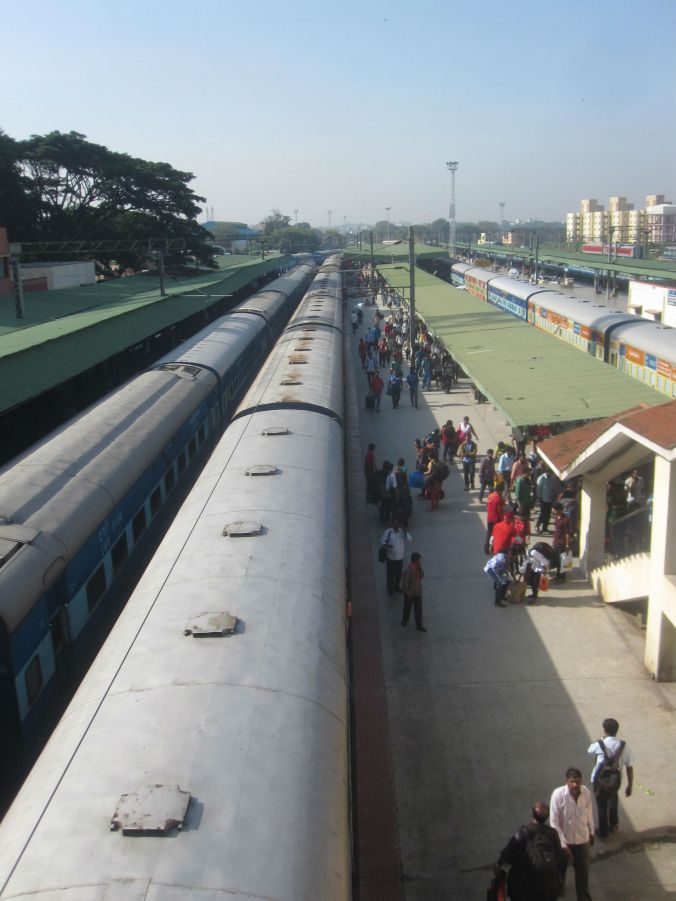
Tågen var verkligen jättelånga med många vagnar! Detta är knappt ena halvan av vårt tåg till Bangalore! The trains were really long with many wagons! This is barely one half off our train to Bangalore!
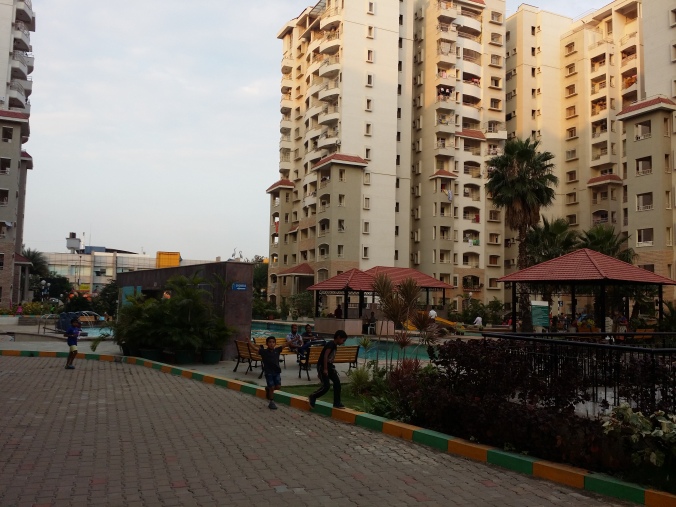
Vi fick uppleva ett “gated community” i Indien och det var kul. We got to experience a gated community in India and it was fun.
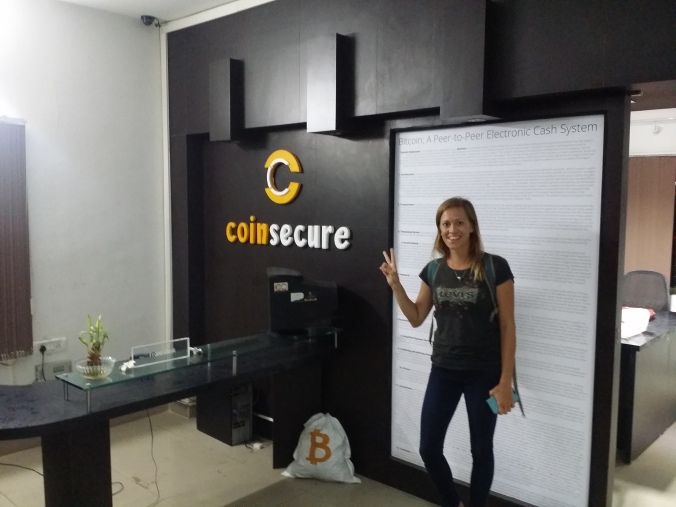
Det var jätteroligt att få se oss omkring hos Coinsecure! It was great to have a look around at Coinsecure!
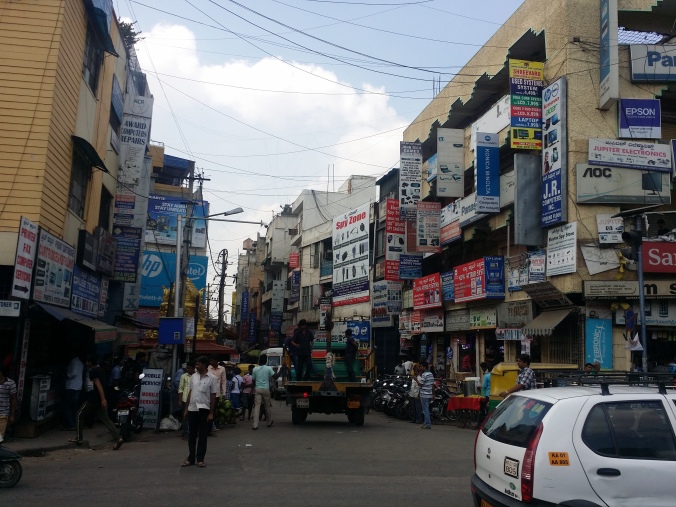
SP vägen där du kan finna allt för din dator eller telefon! SP road where you can find everything for your computer or phone!
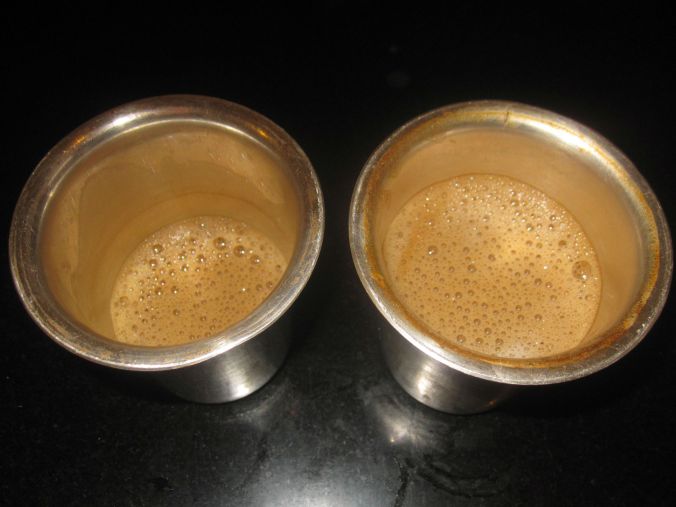
Kaffe serverat i två silvermuggar. Man hällde kaffet mellan dem för att kaffet skulle svalna fortare! Coffee served in two silver cups. You pour the coffee between them to cool down the coffee faster!

Det pågick ett marathon i Bangalore denna dag och vi gillade de uppmuntrande orden vid varje kilometer-märke! It was a marathon in Bangalore this day and we liked the encouraging words at each kilometer mark!
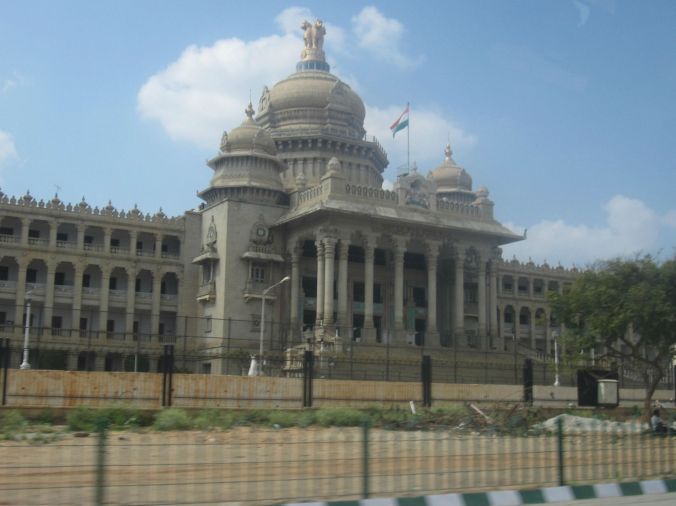
I Bangalore hymlar de iallafall inte. Vid ingången på Karnatakas parlament finner man inskriften “Government work is god’s work”. Håller helt med, en stat är samma sak som religion. At least in Bangalore they don’t try to hide anything. At the entrance of the parliament in Karnataka you find the inscription “Government Work is God’s work”. Could not agree more, a state is the same thing as a religion.
